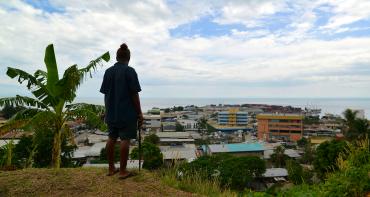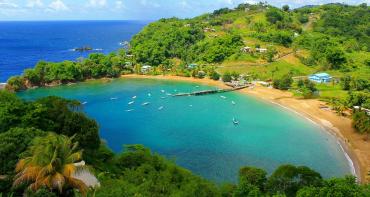Landmark maritime boundary agreements reached between the Caribbean island nations of Barbados, Saint Lucia and Saint Vincent and the Grenadines with the support of the Commonwealth, were formally signed last week.

Landmark maritime boundary agreements reached between the Caribbean island nations of Barbados, Saint Lucia and Saint Vincent and the Grenadines with the support of the Commonwealth, were formally signed last week.
Barbados signed an agreement with Saint Lucia, while Saint Lucia signed an agreement with St Vincent and the Grenadines. They were inked by their respective prime ministers at the Caribbean Community’s summit in St George’s, Grenada, on 6 July.
Prime Minister Freundel Stuart of Barbados hailed last week’s breakthrough as proof of the “breadth, the depth and the tenor of regional cooperation”, as he stressed the importance of nations exercising legal jurisdiction over their waters.
“To be able to agree with one’s neighbours exactly where their jurisdiction begins and yours ends, and vice versa, is thus a matter of the highest import to the proper conduct of the business of the state,” the Prime Minister said.
The agreements are the result of negotiations held between Saint Lucia and Barbados in March 2016 and between Saint Lucia and Saint Vincent and the Grenadines in May 2017, to determine the maritime boundaries between each of the Commonwealth member states.
“This is the fruition of months of productive talks aimed to settle unresolved maritime borders in the Caribbean region,” said Rosemarie Cadogan, Adviser and Interim Head of Oceans and Natural Resources at the Commonwealth Secretariat.
“The latest agreement reflects the commitment of the respective governments to implement the international development agenda, including the SAMOA Pathway and the Sustainable Development Goals, in particular Goal 14. All three agreements make provision for cooperation in marine environmental protection, conservation and management of living resources as well as agreement regarding the effective management of oil and gas deposits. This legal certainty in accordance with international law heralds a bright future for the growth of their blue economies,” she said.
Under the United Nations Convention on the Law of the Sea, an exclusive economic zone extends 200 nautical miles from a state’s coast. Where island territories are in close proximity, diplomatic negotiations are needed to settle the boundary between the nations.
Last week’s treaty signings come after the Commonwealth Secretariat brought together government officials from eight Caribbean countries for working sessions on the negotiation of unresolved marine boundaries and to examine ocean governance.
Barbados previously settled its maritime boundary with Saint Vincent and the Grenadines in August 2016, also with the Commonwealth Secretariat’s advice and support.
Over the past three decades, more than 30 countries have received the Commonwealth Secretariat’s support on maritime delimitation, contributing to the settlement of ocean boundaries in Africa, Asia, the Caribbean and the Pacific. Find out more.



